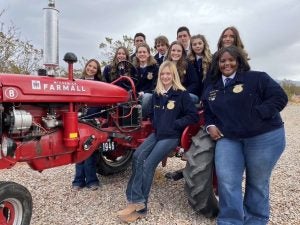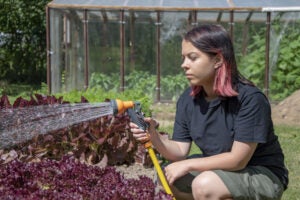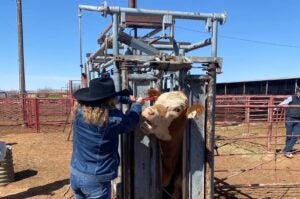“It’s not what you know. But who you know.”
I don’t love that saying. But whenever a previous 4-H or FFA member (former 4-H agent here) asks me for future career or college advice, I’ve realized that the ability to connect to people is a skill that I learned only because of my involvement in 4-H, FFA, agriculture-related jobs, and ag pathway in college. And, it’s the first piece of advice that I offer to them: look for people who are doing what you want to be doing, and get to know them. In the meantime, build up your peers, and push each other to be better.
Because, the thing is that being able to work with and connect to others is an enormous piece of the puzzle when our students are looking at their future.

But, work ethic matters too.
The other piece of the puzzle, though, is the work ethic that these programs build in our kids. In a world where good workers are hard to find, just showing up puts you a notch above the rest. FFA programs are set up to teach students this.
Students who can learn as teens and young adults to work with people, who will show up with a solid work ethic, can adapt to and find success in any position.
Deadlines in agriculture are also concrete, and if they’re not met, the consequences can be devastating — students learn this in the FFA classroom, through SAE’s, and in agricultural-related jobs.
Whenever living things are involved, you don’t get to “forget” (or put off) checking pivots, irrigation ditches, or forget to water your show animals. Not to mention, margins tend to be tight in agriculture, so any mistake is potentially costly.
FFA contests are team sports, and sometimes, you have to work with people you don’t always see eye-to-eye with. Contests also require defined skill sets, and have hard and fast deadlines. FFA members learn to adapt quickly, learn, and work towards an end goal with their team.
What all of this does, is teach students that when something needs to get done, you just have to get it done. It doesn’t matter if the job is listed in your duties, and it doesn’t matter if it requires additional time, and it definitely doesn’t matter who asked you to do the job. Ag kids understand this, and this makes them invaluable as employees.

These skills improve employability in any area.
Even employers that aren’t involved in agriculture recognize this. Seriously. Soft skills such as communication, teamwork, critical thinking, adaptability, and leadership are increasingly central to workplace searchers. So much so, that they’re increasingly central to educator’s teaching plans. FFA teaches all of these things.
And, employers have noticed. From medical professionals to tradesmen, it’s not uncommon for me to hear employers telling my past interns that their resume got pulled because of their ag education experience or FFA background. Why? Because these employers recognize the advantage FFA members bring to the workplace on day one.

Heidi Crnkovic, is the Associate Editor for AGDAILY. She is a New Mexico native with deep-seated roots in the Southwest and a passion for all things agriculture.



